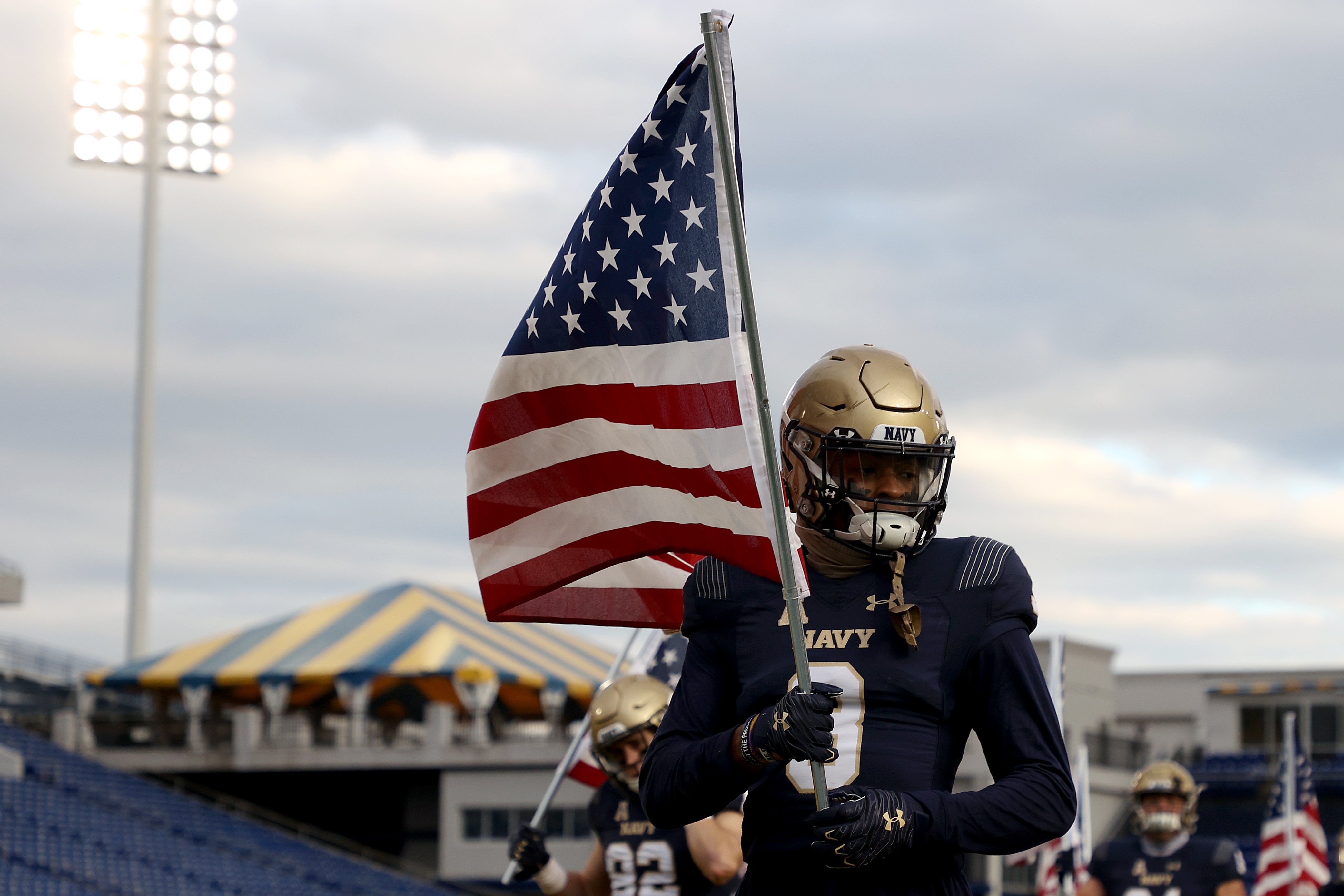US Navy bans top recruit Cameron Kinley from playing in the NFL
Other students at service academies have been allowed to play in the NFL

Your support helps us to tell the story
From reproductive rights to climate change to Big Tech, The Independent is on the ground when the story is developing. Whether it's investigating the financials of Elon Musk's pro-Trump PAC or producing our latest documentary, 'The A Word', which shines a light on the American women fighting for reproductive rights, we know how important it is to parse out the facts from the messaging.
At such a critical moment in US history, we need reporters on the ground. Your donation allows us to keep sending journalists to speak to both sides of the story.
The Independent is trusted by Americans across the entire political spectrum. And unlike many other quality news outlets, we choose not to lock Americans out of our reporting and analysis with paywalls. We believe quality journalism should be available to everyone, paid for by those who can afford it.
Your support makes all the difference.Cameron Kinley, a recent graduate of the US Naval Academy and top football recruit, won’t be able to defer his commission and play in the NFL, the Navy has announced.
The undrafted free agent corner back expressed his dismay on Monday, saying the decision had crushed his “childhood dream” of going pro then serving in the Navy.
“I have spent the past week processing my motions, as it is very difficult to have been this close to achieving a childhood dream and having it taken away from me.”
He had been slated to play as a corner back for the Super Bowl-winning Tampa Bay Buccaneers this fall, alongside all-star quarterback Tom Brady.
The young recruit, who was class president of the US Naval Academy and captain of the football team, also pointed out how under a Trump-era policy, other future commissioned athletes were allowed to hold off on entering the military to go pro.
“While I acknowledge these men are from different branches of the armed services, it puzzles me as to why I am the only person to be denied this opportunity,” Mr Kinley said, adding, “It was my hope to show the value of a service academy education, the benefits of the armed forces and how being allowed the opportunity of a professional football career while still being committed to future service was a win-win for all.”
The Independent has contacted the Navy for comment.
Mr Kinley was recruited to play for the Navy football program as a high-schooler in Tennessee under the expectation he could potentially pursue a pro career alongside his military one.
His agent, a fellow Naval Academy graduate and football player named Ryan Williams-Jenkins, said he was baffled by the Navy’s choice and worried about his client’s mental health.
“If there is a directive and precedent allowing other service academy athletes to pursue this opportunity, what makes Cameron different?” he said in a statement. “It is important to note that this could have a long-term impact on his mental health going forward.”
In 2019, the Trump administration ushered in a waiver policy that would let future military officers at the service academies or receiving ROTC commissions play pro sports.
“As I recently stated, these student-athletes should be able to defer their military service obligations until they have completed their professional sports careers,” the former president said of the policy. “Such cadets and midshipmen have a short window of time to take advantage of their athletic talents during which playing professional sports is realistically possible.”
The move reversed a 2017 policy, which stopped players from pausing their commissions for sports.
“Our military academies exist to develop future officers who enhance the readiness and the lethality of our military services,” then-DoD spokeswoman Dana White said in a statement. “Graduates enjoy the extraordinary benefit of a military academy education at taxpayer expense.”
Mr Finley said he hopes to appeal the decision.



Join our commenting forum
Join thought-provoking conversations, follow other Independent readers and see their replies
Comments